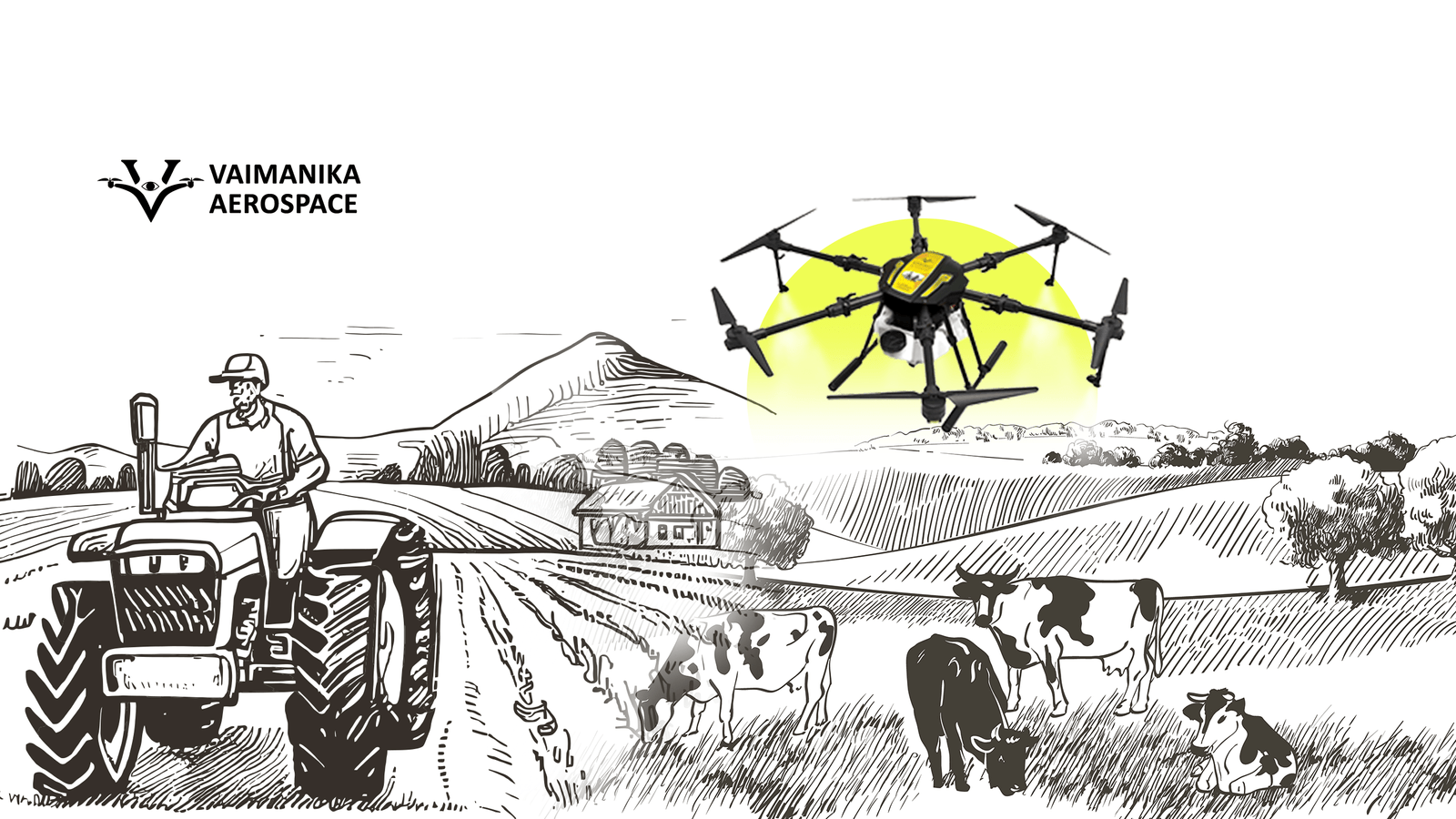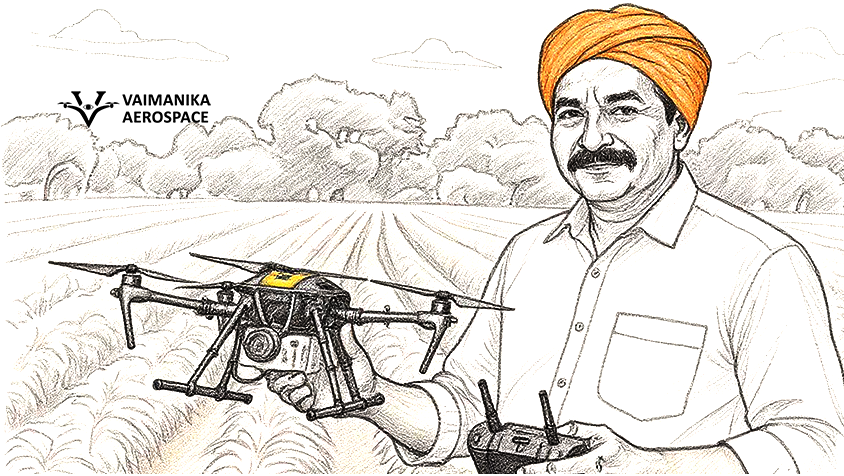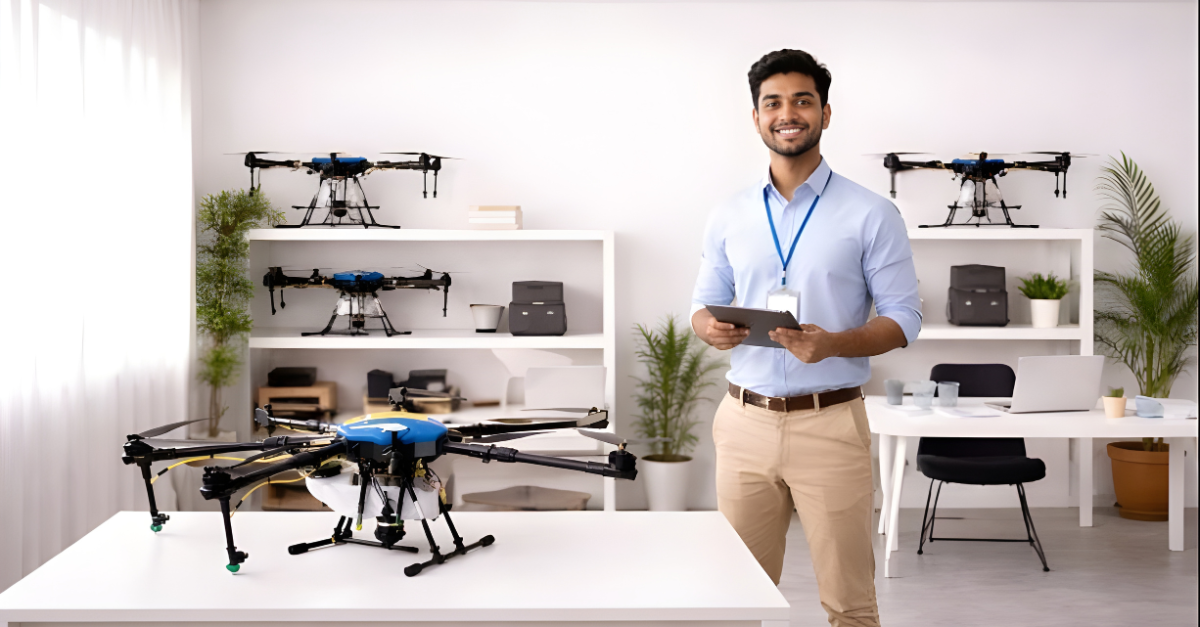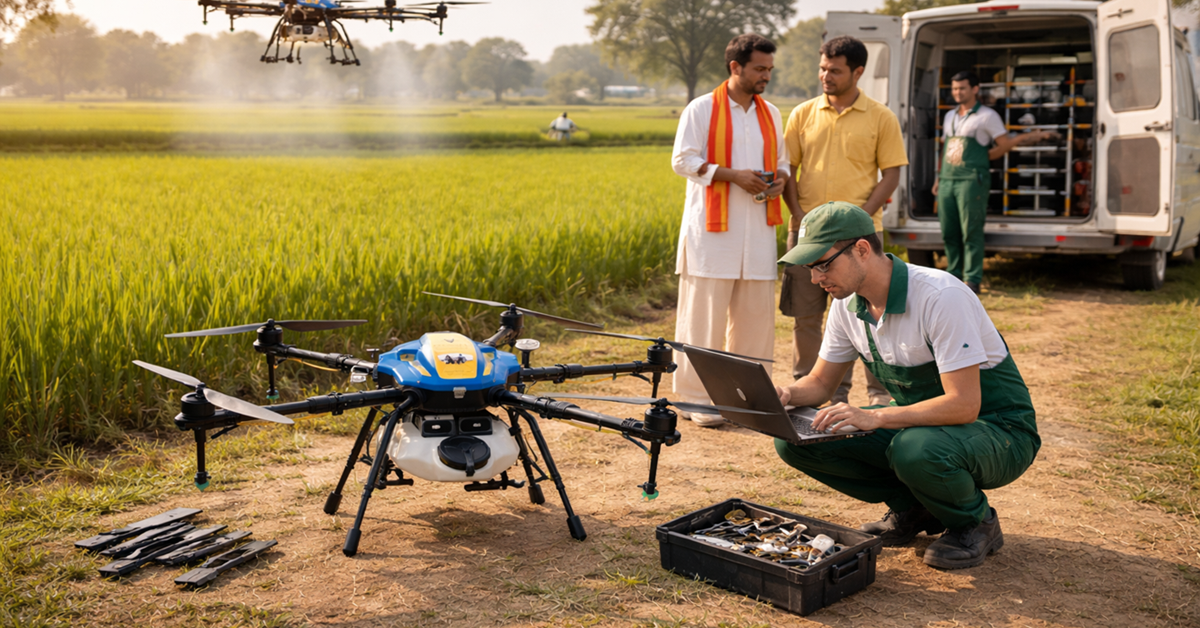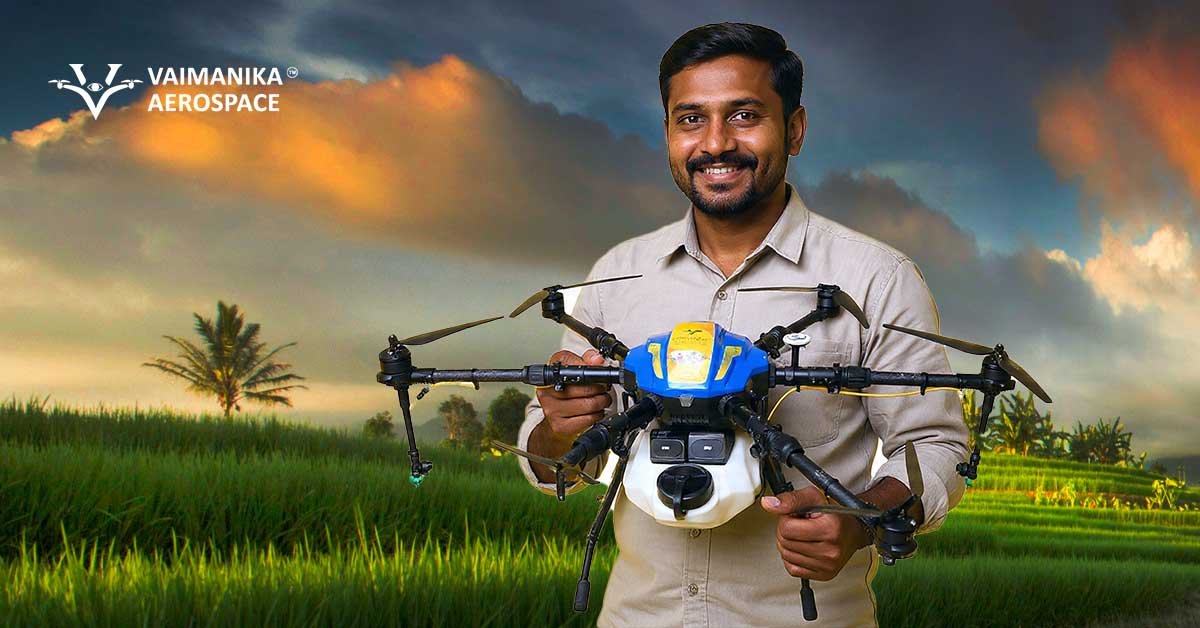Drones have much higher utility today than just aerial photography or for defense purposes. They are now an integral part of several industries, including filmmaking, delivery, infrastructure inspection, and agriculture. However, all drones are not manufactured similarly, nor are their uses the same. For example, Agricultural drones like the Vaimanika Kisan Drone V10 are meant for solving specific farming challenges.
So what makes an agricultural drone different? Let’s dig a bit deeper to answer this question.
-
Set Up for Farming Needs
While a general drone would be utilized for photography, videography, or even surveillance, agricultural drones are made to do field-level tasks such as:
- Spraying pesticides
- Applying fertilizers
- Monitoring crop health
- Surveying and field mapping
- Soil analysis
These operations are critical in enabling farmers to increase productivity while reducing manual labor.
-
High Payload Capacity
A typical camera drone is capable of carrying a load of only a few hundred grams. In contrast, agricultural drones like the Kisan Drone V10 carry tanks of 10 liters or more to cover a decent farm area. They are built to efficiently handle liquids such as pesticides, herbicides, and fertilizers. Watch a complete demo of our Kisan Drone V10.
-
Specialized Aircraft Spray Systems
Agricultural drones maintain unique nozzle systems, pumps, and flow meters to ensure uniform application and precision spraying. A majority of commercial drones do not possess such capabilities; they cannot spray because they have been designed to fly and film.
-
Advanced Sensors for Crop-Monitoring Applications
Most agri-drones use multispectral or thermal cameras to detect:
- Water stresses,
- Disease outbreaks, and
- Nutrient deficiencies.
In contrast, consumer drones use regular RGB cameras for visuals and lack the analysis needed in farming.
-
Automated Flight with Field Mapping
Recreational drones are mostly controlled by manual commands; conversely, agricultural drones mostly rely on autonomous GPS-controlled flights. Farmers just need to map their field, and let the drone do everything, guaranteeing coverage, preventing overlap, and decreasing chemical use.
-
Built to Operate under Harsh Environments
Agriculture drones operate under dusty, windy, and humid conditions. They are more rugged and weather-resistant than commercial drones that operate in clean, controlled environments.
-
Data Integration for Decision-Making
Better quality agri drones collect data in real time and integrate it with farm management systems or mobile applications, promoting data-based decision-making features absent in consumer drones.
Where Else Are Drones Used?
Today’s drones serve many functions beyond aerial photography. Camera drones are at the top of the list for capturing high-resolution images and videos, with stabilizing gimbals for smooth footage. Surveillance drones rank next for defense and security agencies as these drones have employment of infrared vision, night cameras, and long battery life to keep watch on borders and high-risk areas. Delivery drones, in the realm of logistics, ferry parcels and medical supplies over optimized short-range flight paths, ensuring the charging of drones’ batteries in less time. Industrial drones carry out thermal imaging tests for infrastructure inspection and mining fields; meanwhile, they are capable of rigorous fieldwork and obstacle avoidance in complex environments. Taxi drones take the lead in urban air mobility, offering fully autonomous, short-distance passenger flights with sophisticated safety systems, setting forth science fiction from the nascent stages of reality.
The Bottom Line
The agricultural drone is a specialized machine for modern-day precision farming. However, unlike other drones, these are special kinds designed for innovation, making farming more efficient, profitable, and sustainable. In the wake of government support and raised demand, an agricultural drone business stands to be an opportunity for the books of tomorrow.
Want to know how you can launch your very own Drone Sales & Service Center with Vaimanika? Contact us today on +91 76771 11150.
